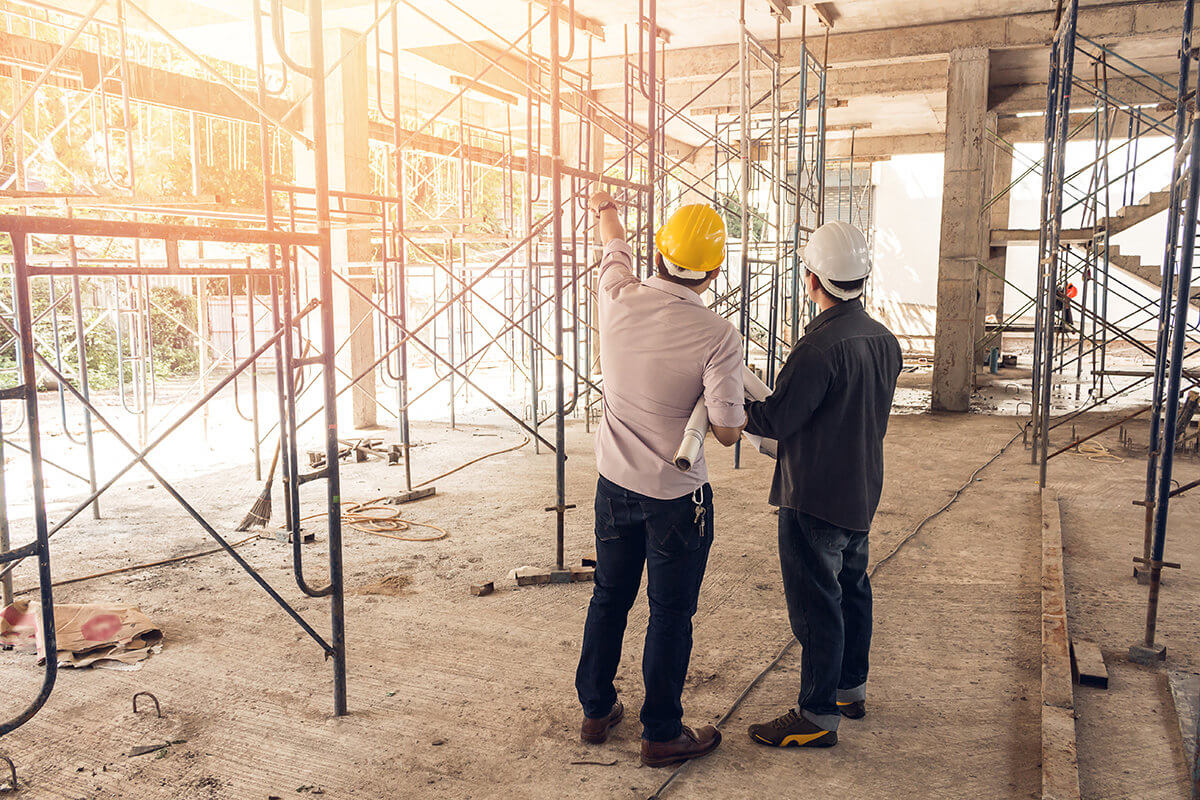Building works are expensive, and there’s often no getting around that. For many, they are the most expensive project that they’ll ever embark on. For this reason, looking for ways to cut down on the cost of building is a high priority for many.
Stretching the dollar might mean the difference between a project completed to the ideal specifications, and one that needs to make hard sacrifices. At the same time, safety during – and after – a construction job is paramount too, and finding ways to reduce building costs without compromising on quality is really important.
There are a couple of easy tricks that can help you reduce the cost of the building project that won’t put anyone at risk:
1. Think about terrain
Before you even buy a property, look at how easy it will be to build on. Properties that are out of the way, or on difficult terrain, might sell quite cheaply. You might even like the idea of living in an area a bit removed from civilization, but clearing trees and terraforming land so that you can build on the property in the first place can be a very expensive process, adding substantially to your building costs before you even begin. Look around for a property that’s easily accessible in order to minimise these pre-project costs.
2. Revise your project design
Consider how complex the plans are. Everyone likes to have a unique home that really reflects who they are, but the further that you stray from a standard home design of rectangles and straight lines, the more challenging the project will be for the contractor, and the more expensive it will be to complete. Curves, triangles, excessive use of glass for walls, and unusual materials will all add to the cost of the budget, so carefully consider if that extravagance is that important.
3. Understand the greatest costs
See whether it will be more economical to build up, rather than out. Two of the more expensive costs in building a home are the foundations and roofing, and if you have a tall, multi-story home, you’ll be able to get the same floorspace as a sprawling single story home into a more compact area, which might well save you costs, both in the immediate construction and longer-term maintenance of the building.
4. Invest in high-quality materials
“Hang on,” you might say. “How does spending more on materials save me money?” Over the longer term, quality materials will require far less maintenance or replacement further down the line. And such costs will quickly add up, particularly for things in the house that won’t be easy to replace once installed. Getting quality materials in will shield you from a lot of major (and incredibly expensive) restoration work.
5. Hire a good contractor
A good contractor that comes highly recommended will likely charge a little more for their services, but what you’ll get in return will save you money. They’ll be less prone to make mistakes, have a network of higher quality sub-contractors to call on for specialist tasks, and will generally work more efficiently and to a more accurate budget (saving you from potential budget blowouts, or projects that are expensive in running far overtime). As this is one of the major investments that you’ll make in life, you really want to make sure the right people are working on it.
6. Consider DIY
Is there anything you can do yourself? One way to save on the costs of contractors is to do some of the work yourself. You can hire excavators and other construction tools for a relatively inexpensive fee, and as long as you’re confident in your ability to use them, the results will be the same as if a contractor took on the work. Of course, the flipside to this is that if you’re not confident in your abilities, you might end up making significant mistakes that require expensive work to fix.
Many people have skillsets that would allow them to cut down on the cost of construction by getting hands on for one or two parts of the process. Very few would have the skills to do everything themselves, so have a discussion with your contractor over which parts of the home construction process you’d like to handle yourself.
7. Plan the construction process carefully
One of the biggest costs that can ruin a construction job’s budget is wasted time. This especially applies to subcontractors such as electricians, plumbers, and landscapers that will charge by the hour, and if the home isn’t at the point where their skills are called in, they could be sitting around and waiting to go for hours. Designing an accurate schedule of events is critical in keeping the project on-budget for this reason.
8. Source your own materials
Contractors will have sources for materials that they will use by default unless you go elsewhere, and their commercial agreements will often be with suppliers that are more expensive than what you can track down. Many of the materials in a house can even be recycled or restored, and you can save thousands by building a list of materials and then doing some shopping around for yourself.
Your contractor should be sensitive to your desire to maximise your savings through the construction process, and indeed, when talking to contractors, make sure you choose one that is willing to be flexible and work to your own budget plans. By hiring your own equipment such as excavators for a range of tasks, getting hands on yourself, and doing some research in sourcing materials, you can save a lot from your construction costs without risking the quality and safety of the work.





1 thought on “A Quick Guide to Managing Construction Costs Without Compromising on Quality”
Comments are closed.